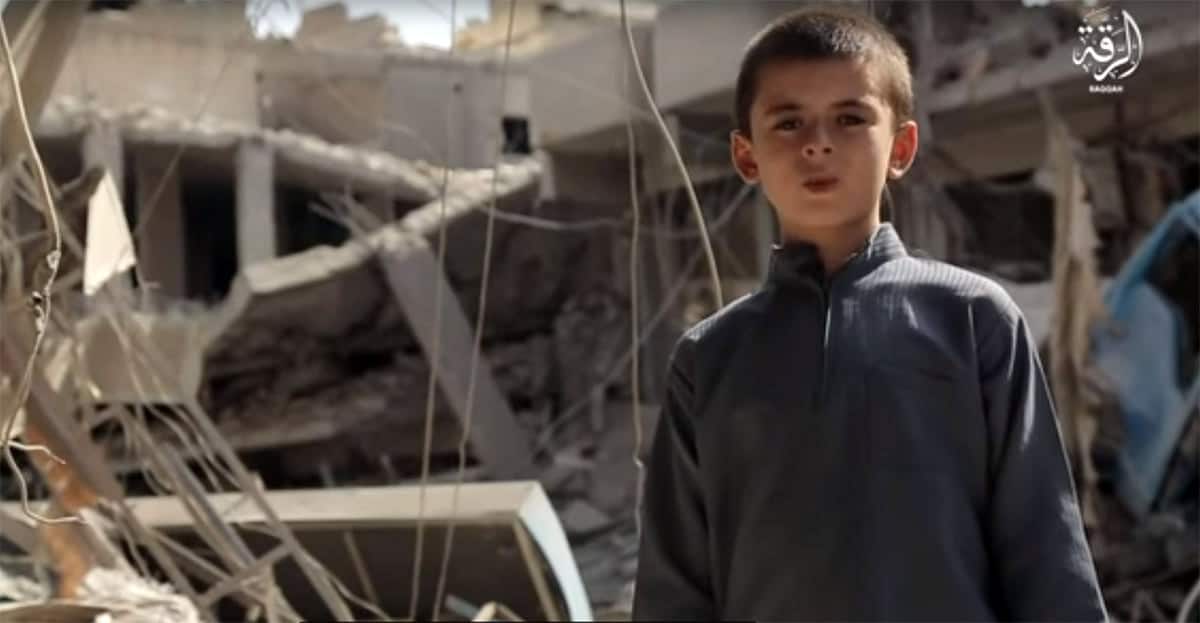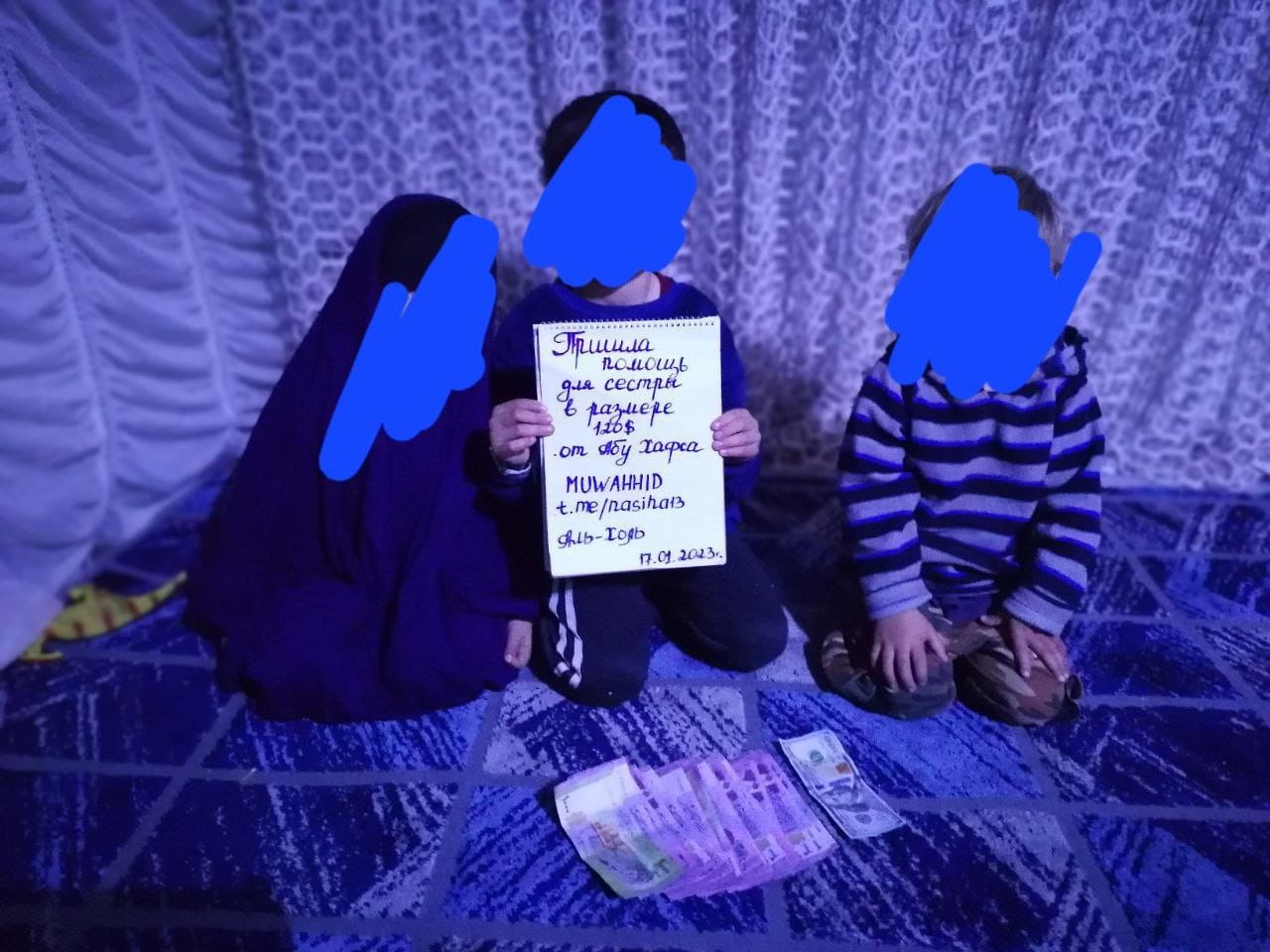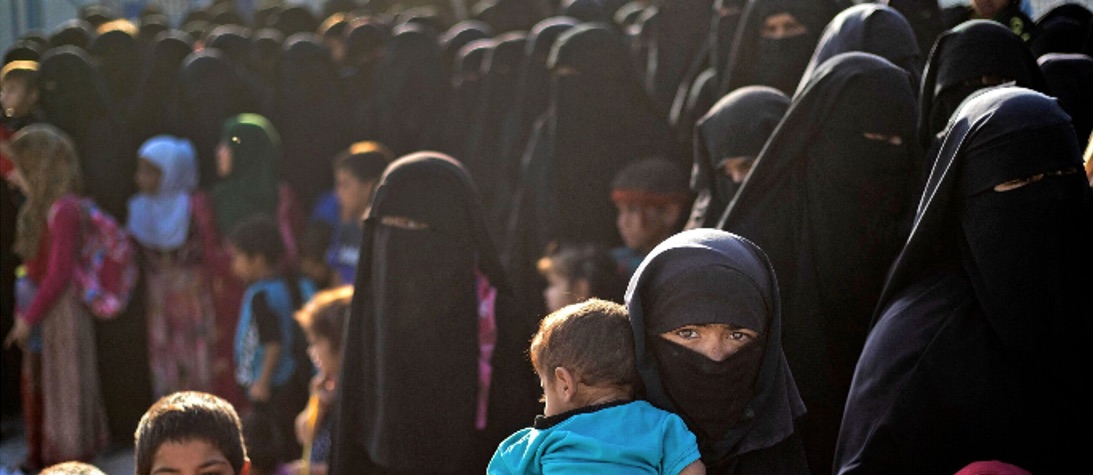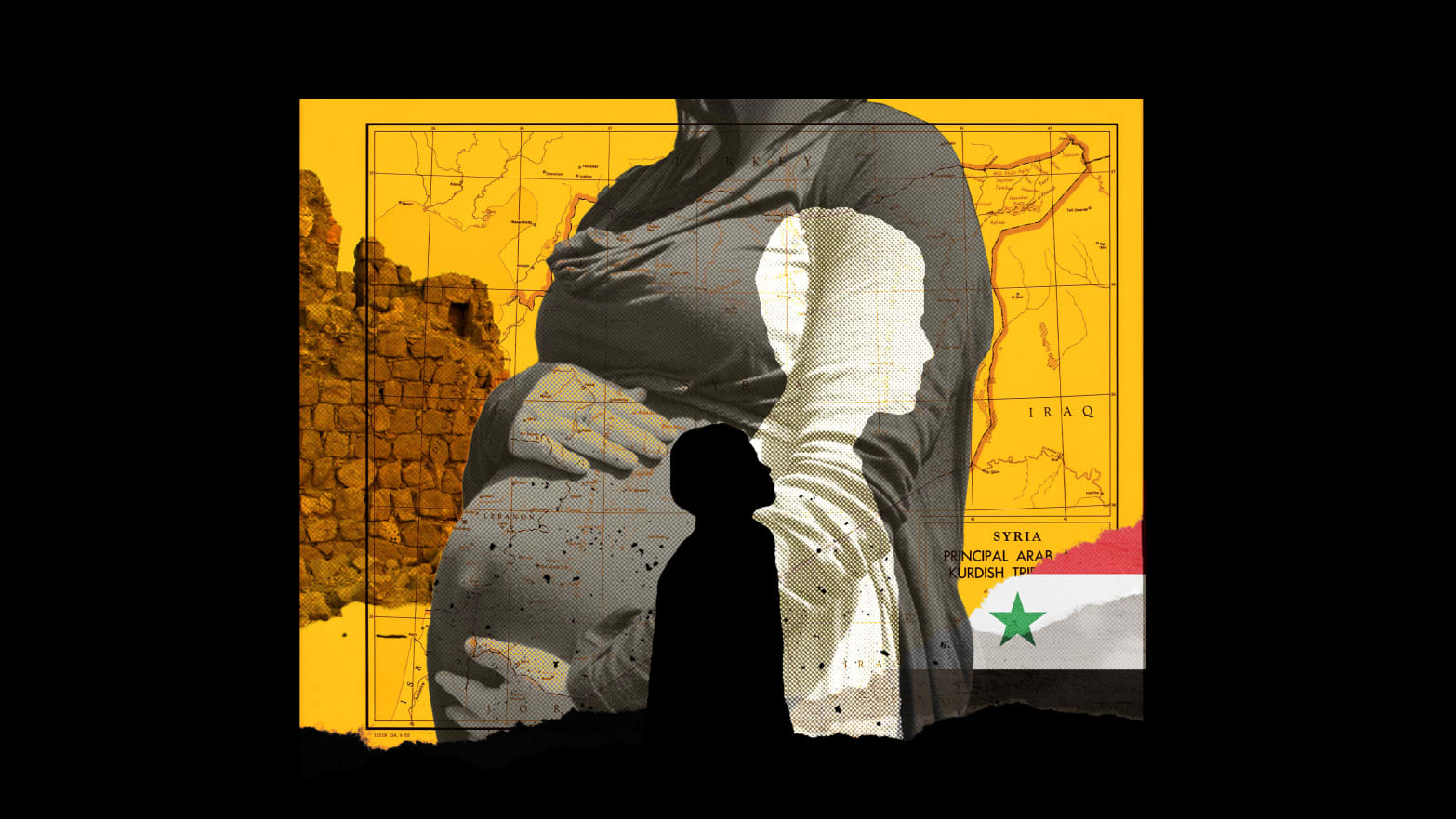Mona Thakkar & Anne Speckhard Despite notable repatriation progress in early 2023, involving 14 countries…

Can the Case of Samantha Elhassani Be a Positive Example for Repatriation of Other ISIS Wives?
Anne Speckhard and Molly Ellenberg
As published in Homeland Security Today:
Samantha Elhassani, an American woman from the state of Indiana, was sentenced last week in federal court for having transported tens of thousands of dollars in cash, gold, and jewelry through Hong Kong to help her husband and his brother join ISIS in Syria. The U.S. Attorney’s Office for the Northern District of Indiana announced via a press release that Elhassani has been sentenced to 78 months (6.5 years) in prison and three years of supervised release after pleading guilty to financing terrorism.
Elhassani entered ISIS territory in Syria in March 2015 accompanied by her Moroccan-born husband and young son (born by another father) and bore two more children in Raqqa. In her guilty plea, Ms. Elhassani claimed she did not know that she would actually be traveling to Syria until she arrived in Raqqa and has previously claimed that her husband coerced her to cross into Syria by threatening he would take their young daughter into Syria, whether she came or not. However, prosecutors argued that Elhassani was fully aware of her actions and the consequences they would have on her children.
While living under ISIS, Ms. Elhassani’s 10-year-old son, whose father is a former U.S. soldier, was forced by her ISIS husband to appear in an ISIS propaganda video threatening Americans. Elhassani’s husband and brother-in-law were both killed while in ISIS, but Ms. Elhassani was able to escape after the siege of Raqqa with her children as well as two Yazidi enslaved girls into Kurdish-held territory where she was taken into custody by the Syrian Democratic Forces (SDF) and held in Camp Roj for over a year. By all accounts, Ms. Elhassani treated the two Yazidi girls with compassion although they were brutally raped in her home by Elhassani’s husband.
In 2018, after much haggling between interlocuters (including the first author), the U.S. State Department and Justice Department over whether her American children deserved to be repatriated, even potentially against her will, the United States government finally repatriated her four children, bringing their mother with them, and she is now one of 27 American citizens repatriated from Syria, 17 of whom were born or brought into ISIS as minors. Assistant Attorney General for National Security John Demers said, “We repatriated Elhassani from Syria because every nation is responsible for holding its citizens accountable and addressing the future threat they may pose.” Upon return, Ms. Elhassani pleaded guilty and her children were placed in the custody of the Indiana Department of Child Services. The fact that four American children, two of them U.S. passport holders, were allowed to languish in a detention camp/prison run by U.S. allies for over a year, whereas U.S. journalist James Foley had a U.S. SEAL team launched to rescue him out of ISIS territory, was seen by some as unconscionable by the U.S. government.
That Elhassani and her children were finally repatriated, and she was brought to justice while her children were placed in protective care, is an example of how repatriations can be successfully handled. While Elhassani’s lawyers complained that she was being tried for the crimes of her deceased husband, who according to family members dealt in arms, her sentence is warranted given that she admitted to having transported cash to finance the couple’s journey into ISIS. It is notable that men convicted of similar crimes tend to be sentenced to much longer periods of time. This may reflect the considerable ill treatment Elhassani has already suffered, having been jailed and raped by ISIS when they accused her of being a spy.
The repatriation and subsequent conviction of Ms. Elhassani, as well as many of the other U.S. citizens repatriated from Syria, is an example of the steps that other Western countries should be taking to try their own citizens at home and thereby seizing control versus leaving them in conflict-torn circumstances, where ISIS women held in Camp al Hol were escaping on weekly basis over the past year. Likewise, repatriation of the mothers brings their children to safety, an important point given that these young ISIS children committed no crimes other than to be born or brought into ISIS by their parents.
In addition to repatriating Americans who joined ISIS, the U.S. government also successfully negotiated with the UK, agreeing not to seek the death penalty, in order to extradite Alexanda Kotey and El Shafee Elsheikh, two of the ISIS “Beatles” who were stripped of their British citizenship. They will be tried in U.S. federal court for their alleged crimes against Americans, including torture and brutal punishment of American journalists and aid workers held hostage by ISIS. The fact that they are being tried in U.S. federal court rather than being taken to military tribunals at Guantanamo Bay also shows an increased U.S. government confidence in federal courts to successfully try such cases.
While nearly all American ISIS detainees have been repatriated from Northeast Syria, very few Europeans have been repatriated, with Irish woman Lisa Smith standing out as an exception to the rule. Kosovo and Macedonia have also made strides in repatriations. However, European politicians drag their feet fearful that repatriations could cost them their jobs in future elections, particularly if any of the returnees turns out to be impossible to convict or recidivates by carrying out attacks at home. A recent spate of attacks in France and Austria and resulting jihadist social media storm has sent a further chill down European intentions to consider repatriations. Nordic countries in particular have faced political turmoil with even the suggestion of repatriating women who joined ISIS. Many countries have also refused to repatriate non-orphaned children with citizenship or claims to citizenship, even in cases when the mother consents to having her child repatriated without her. In Europe this refusal is due to family reunification laws that would likely open a path for both mothers and fathers of ISIS children to make a claim for their own repatriations. We delve deeper into this subject in our article “Can We Repatriate the ISIS Children?”
In lauding the U.S. Government’s actions in holding Ms. Elhassani accountable for her crimes while also acting in the best interest of her four innocent children, as well as the decision to try Kotey and Elsheikh in a civilian court, it is important to remember that two Americans are still in SDF custody in Northeast Syria. Kimberly Pullman has dual citizenship with Canada and the U.S. and traveled to ISIS on her American passport. Kimberly also has an American Social Security card associated with an address in Texas (shown below). Kimberly left her home in Canada in a suicidal state after having suffered through a rape, having decided it was better to apply her nursing skills to help Syrian children rather than kill herself, which is a grave sin in Islam. Pullman’s disability adjudication (shown below), based on her psychiatric state prior to joining ISIS, tragically arrived the day after she left for Syria. Although Pullman worked as a nurse in an ISIS hospital, she spoke out against ISIS while in Raqqa and was imprisoned by ISIS and raped in an ISIS prison. She is currently in Camp Roj, still suffering from serious post-traumatic and other health disorders and should be repatriated on mental health issues alone.


The second American still held is Hoda Muthana, infamous for tweets and other social media posts credited to her, posts that threatened Americans while also inciting terrorism and recruiting for ISIS. Muthana denies being the author of the postings. Muthana, conservatively raised and still very naïve at age 19, left for ISIS from Alabama after having been convinced, via her Twitter contacts, that it was her Islamic duty to join the Caliphate and that she would go to hell if she failed to do so. When she turned up in SDF custody, President Trump and Secretary of State Mike Pompeo denied that she was a U.S. citizen since her father had been serving as a diplomat around the time of her birth. Mr. Muthana provided the courts with a letter (shown below) from the U.S. State Department acknowledging that he was out of diplomatic status as of Sept. 1, 1994, well before Hoda was born in late October 1994 in New Jersey, facts that would ensure her claim to U.S. citizenship. As further proof of her citizenship, Hoda was granted two U.S. passports, both of which the U.S. State Department now claims were mistakenly issued.

Hoda’s citizenship claim is currently being decided in federal court and if she wins it, as her father is confident she will, she should also be repatriated to the U.S. along with her preschool-aged son, Adam, who is not guilty of any crimes but is being held prisoner in a camp for having been born to an ISIS mother in ISIS territory. Adam suffers from chronic respiratory problems and was very sickly at the time of the first author’s interview with Hoda, and he continues to have trouble breathing at night. His American citizen grandfather and green card-holding grandmother, who reside in the U.S., are eager to bring him to safety.
Hopefully, the success of Ms. Elhassani’s repatriation, similar to Lisa Smith’s in Ireland, in which both were swiftly brought to justice, will encourage other countries to repatriate their own citizens and hold them accountable rather than leaving them in legal limbo with their young children in camps/prisons in Northeast Syria. Hopefully it will also encourage the United States to again act in the best interest of other children who were brought or born into ISIS who urgently need to be brought to safety, good healthcare, nurture and be allowed to resume their educations. The successful prosecution of those already repatriated, both in the U.S. and elsewhere, and the reintegration of their children, should shine a path toward taking good decisions when it comes to these cases of long-term detentions without charges of ISIS family members currently held in NE Syria.
Reference for this article: Speckhard, Anne, and Ellenberg, Molly (November 16, 2020). Can Case of Samantha Elhassani Be a Positive Example of Repatriation of Other ISIS Wives?. Homeland Security Today
About the authors:
Anne Speckhard, Ph.D., is Director of the International Center for the Study of Violent Extremism (ICSVE) and serves as an Adjunct Associate Professor of Psychiatry at Georgetown University School of Medicine. She has interviewed over 700 terrorists, their family members and supporters in various parts of the world including in Western Europe, the Balkans, Central Asia, the Former Soviet Union and the Middle East. In the past five years years, she has interviewed 245 ISIS defectors, returnees and prisoners as well as 16 al Shabaab cadres and their family members (n=25) as well as ideologues (n=2), studying their trajectories into and out of terrorism, their experiences inside ISIS (and al Shabaab), as well as developing the Breaking the ISIS Brand Counter Narrative Project materials from these interviews which includes over 200 short counter narrative videos of terrorists denouncing their groups as un-Islamic, corrupt and brutal which have been used in over 150 Facebook and Instagram campaigns globally. She has also been training key stakeholders in law enforcement, intelligence, educators, and other countering violent extremism professionals, both locally and internationally, on the psychology of terrorism, the use of counter-narrative messaging materials produced by ICSVE as well as studying the use of children as violent actors by groups such as ISIS. Dr. Speckhard has given consultations and police trainings to U.S., German, UK, Dutch, Austrian, Swiss, Belgian, Danish, Iraqi, Jordanian and Thai national police and security officials, among others, as well as trainings to elite hostage negotiation teams. She also consults to foreign governments on issues of terrorist prevention and interventions and repatriation and rehabilitation of ISIS foreign fighters, wives and children. In 2007, she was responsible for designing the psychological and Islamic challenge aspects of the Detainee Rehabilitation Program in Iraq to be applied to 20,000 + detainees and 800 juveniles. She is a sought after counterterrorism expert and has consulted to NATO, OSCE, the EU Commission and EU Parliament, European and other foreign governments and to the U.S. Senate & House, Departments of State, Defense, Justice, Homeland Security, Health & Human Services, CIA, and FBI and appeared on CNN, BBC, NPR, Fox News, MSNBC, CTV, CBC and in Time, The New York Times, The Washington Post, London Times and many other publications. She regularly writes a column for Homeland Security Today and speaks and publishes on the topics of the psychology of radicalization and terrorism and is the author of several books, including Talking to Terrorists, Bride of ISIS, Undercover Jihadi and ISIS Defectors: Inside Stories of the Terrorist Caliphate. Her publications are found here: https://georgetown.academia.edu/AnneSpeckhardWebsite: and on the ICSVE website http://www.icsve.org
Follow @AnneSpeckhard
Molly Ellenberg, M.A. is a research fellow at ICSVE. Molly is a doctoral student at the University of Maryland. She holds an M.A. in Forensic Psychology from The George Washington University and a B.S. in Psychology with a Specialization in Clinical Psychology from UC San Diego. At ICSVE, she is working on coding and analyzing the data from ICSVE’s qualitative research interviews of ISIS and al Shabaab terrorists, running Facebook campaigns to disrupt ISIS’s and al Shabaab’s online and face-to-face recruitment, and developing and giving trainings for use with the Breaking the ISIS Brand Counter Narrative Project videos. Molly has presented original research at the International Summit on Violence, Abuse, and Trauma and UC San Diego Research Conferences. Her research has also been published in the Journal of Child and Adolescent Trauma, the Journal of Strategic Security, the Journal of Human Security, and the International Studies Journal. Her previous research experiences include positions at Stanford University, UC San Diego, and the National Consortium for the Study of Terrorism and Responses to Terrorism at the University of Maryland.



